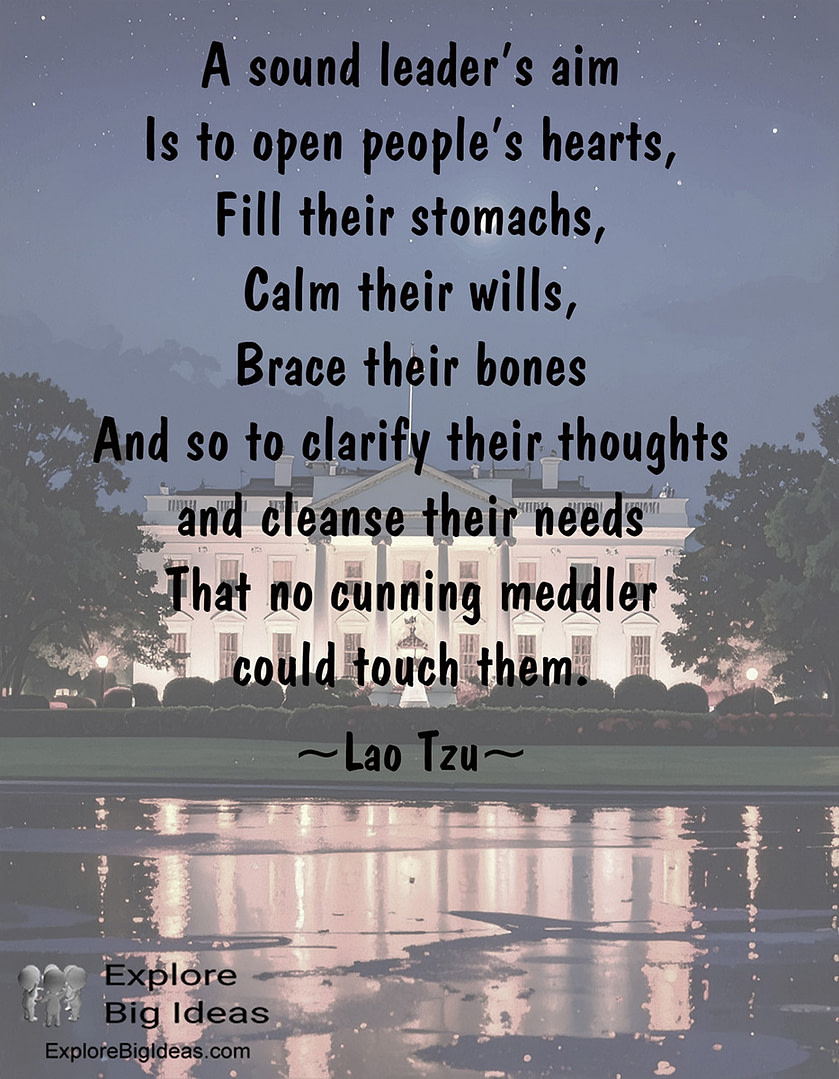Lao Tzu: The Enigmatic Founder of Taoism
In this meme quote, Lao Tzu has something profound to say about leadership. Lao Tzu, or roughly “Old Master”, is a seminal figure in Chinese history and philosophy. His life is obscure, his history legendary and controversial. Tradition places him as a contemporary of Confucius (6th-5th centuries BCE), an archivist or keeper of records during the Zhou dynasty’s downfall. Certain sources even put him as a contemporary of the mythical Yellow Emperor. The specifics of his birth, life, and death are uncertain–he’s thought to be a legend, probably an amalgam of several thinkers.
Regardless of the historical reality of his figure, Lao Tzu is said to have written the Tao Te Ching, also known as the Daodejing, the classic text of Taoism. This brief yet compelling text describes the Tao, variously translated as “the Way,” “the Path,” or “the Ultimate Principle.” Tao refers to the principle through which all things exist, a way that brought the universe into being. Not a god, but a cosmic force that reveals itself in everything. The Tao Te Ching, for example, shows you how to live in harmony with the Tao by applying principles such as “wu wei.”
The Importance of Lao Tzu and His Teachings
The reason Lao Tzu is important is due to his significant impact on Chinese thought, culture, and spirituality. His philosophies, as outlined in the Tao Te Ching, have resonated throughout the ages and across the world. Among his contributions:

* Foundation of Taoism: He is considered the founder of Taoism, a philosophy and religion centered on living in harmony with nature, embracing simplicity, and adapting to change. Taoism stands in stark contrast to Confucianism’s emphasis on social order and ritual.
* Emphasis on Natural Order: Lao Tzu’s focus on the Tao, the natural order of the universe, kept his teachings grounded in a worldview that transcended rigid rules and stressed the inherent connectedness of all things.
*Wu Wei: The misunderstood, often wrongly translated, concept of “wu wei” promotes action that is spontaneous and natural, in harmony with the Tao rather than imposing one’s will.
* Influence on Art, Literature, and Politics: Taoist philosophy has a profound influence on Chinese culture, permeating art, literature, poetry, and even political thought. The quest for harmony and balance, at the core of Taoism, resonates across various fields of human endeavor.
* Global Influence: The Tao Te Ching has been published in numerous translations and languages, bringing Lao Tzu’s thoughts to a worldwide readership. His lessons continue to inspire those seeking a more mindful and harmonious existence.
Conclusion
While the historical Lao Tzu is shrouded in mystery, the shadow of his thought continues to cast a potent and resilient presence in both Eastern and Western philosophy and spirituality. His impact extends far beyond the specifics of Taoism, reaching into the broader ideas of balance, nature, and the pursuit of cosmic significance.




